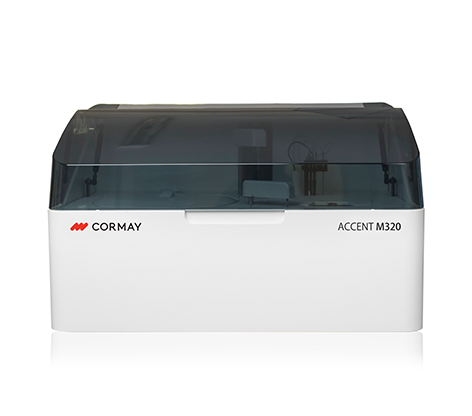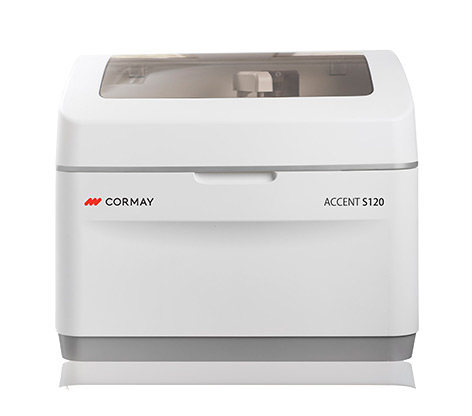ALKALINE PHOSPHATASE
Alkaline phosphatase (ALP) is an enzyme found in many tissues, especially bone, intestine, kidney and liver. Determinations of ALP activity in serum and plasma are mainly used as an aid in diagnosis, differentiation and monitoring of hepatobiliary disease and bone diseases.
Elevated levels of the enzyme in the blood are observed, e.g. in cholestatic liver diseases, osteoporosis or Paget's disease. Decreased ALP levels are associated with Wilson's disease, hypophosphatasia and deficiency of magnesium, zinc and vitamin B12.
Measurement of ALP activity is also used as a predictive marker in outcomes (death or liver transplantation) of patients with primary sclerosing cholangitis (PSC) and primary biliary cholangitis (PBC).
Specification
|
Method |
Kinetic method recommended by International Federation of Clinical Chemistry (IFCC) |
|
Specimen |
serum, plasma |
|
On board stability |
up to 12 weeks |
|
Calibration stability |
up to 2 weeks |
|
Measuring range |
linear up to 1560 U/l |
|
Regulatory status |
CE IVD |
Reagent lines
Multipurpose Line
Liquick Cor-ALP 30
Liquick Cor-ALP 60
Liquick Cor- ALP 120ACCENT-200
ACCENT-300
A-400
A-800
Prestige 24i
Prestige 24i LQ ALP (24 positions reagent tray)
Prestige 24i LQ ALP (36 positions reagent tray)B50
OS
HC
Panels: routine screening, bone metabolism, hepatic, pregnancy
Available reagents
A-800 ALP
ACCENT-200 ALP
ACCENT-300 ALP
B50-ALP
HC-ALP
LIQUICK COR-ALP
OS-ALP
PRESTIGE 24i LQ ALP
The specification was based on data determined on selected analyzers. We recommend that all users should refer to the instruction for use (IFU) and instruments’ user or service manuals before proceeding.

Order this product
To order this product, please contact your Area Sales Manager for details. If you have any questions, click the button below and fill out the form. We will contact you as soon as possible.


